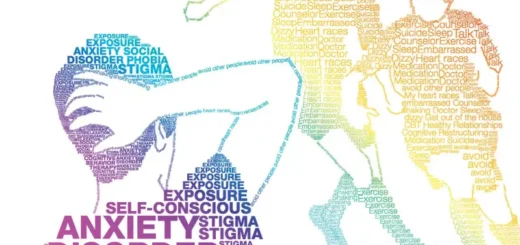Exploring Attachment Styles and Social Phobia in New Zealand
In New Zealand, the interplay between attachment styles and social phobia traits has garnered increasing attention among mental health professionals. Attachment theory suggests that the bonds formed in early childhood can significantly influence emotional regulation and interpersonal relationships. This connection is particularly relevant for individuals with social phobia traits, who often experience intense fear and anxiety in social situations. Understanding these dynamics can provide valuable insights into effective interventions and support systems tailored to the unique cultural context of Kiwis.
Research indicates that individuals with insecure attachment styles may be more susceptible to social phobia traits, leading to heightened social anxiety and avoidance behaviors. By exploring how these attachment patterns manifest in New Zealand’s diverse population, mental health practitioners can better address the specific needs of those affected. For more information on social phobia and its causes, visit Social Phobia New Zealand.
Understanding Attachment Styles
Attachment styles are psychological patterns that influence how individuals form emotional bonds and interact with others. They stem from early interactions with caregivers and can be classified into four primary types: secure, anxious, avoidant, and disorganized. Each style shapes our social behaviors and can significantly affect the development of social phobia traits. In New Zealand, where community and cultural values play a crucial role in social interactions, understanding these attachment styles is essential for addressing social anxiety issues.
Individuals with a secure attachment style typically enjoy healthy relationships and exhibit confidence in social settings. In contrast, those with anxious or avoidant attachment styles may struggle with social phobia, leading to feelings of inadequacy and fear of judgment. For example, an anxious individual might constantly seek reassurance from friends in social situations, fearing they will be rejected. Conversely, an avoidant person may withdraw from social gatherings altogether, believing that closeness leads to vulnerability.
This understanding of attachment styles is crucial for developing effective strategies for managing social phobia. For local resources and support, you can visit Social Phobia New Zealand to explore how attachment styles can be addressed in therapeutic settings.
The Link Between Attachment Styles and Social Phobia
Research indicates a strong correlation between attachment styles and the manifestation of social phobia traits. Individuals with insecure attachment styles often experience heightened anxiety in social situations. For example, someone with an anxious attachment style may feel overwhelming fear of negative evaluation, leading to avoidance of social interactions, which is a common trait of social phobia.
In the context of New Zealand, cultural factors can exacerbate these experiences. The importance placed on community and social gatherings in Māori and Pākehā cultures may intensify feelings of inadequacy for those with insecure attachments. They may fear that their perceived shortcomings will be highlighted in social settings, leading to isolation.
Understanding this link is vital for mental health professionals in New Zealand. Therapeutic approaches that focus on modifying attachment styles can empower individuals to manage social phobia more effectively. For more information on addressing these issues, refer to Social Phobia New Zealand.
Identifying Social Phobia Traits in Different Attachment Styles
Social phobia traits can manifest differently depending on an individual’s attachment style. Those with secure attachment typically exhibit low levels of social anxiety, feeling comfortable in social situations and maintaining healthy relationships. On the other hand, individuals with anxious attachment may display traits such as excessive worry about social interactions, fear of embarrassment, and a heightened sensitivity to criticism.
Avoidant attachment styles often lead to traits of social phobia characterized by withdrawal from social situations, a reluctance to form close relationships, and a tendency to downplay the importance of social interactions. For instance, a New Zealander with an avoidant attachment style might decline invitations to social events or feel detached even when among friends, fearing intimacy or vulnerability.
Recognizing these traits can be the first step toward addressing social phobia. Many resources, including those available through Social Phobia New Zealand, offer support and tools for individuals struggling with these issues.
Impact of Cultural Factors on Attachment and Social Phobia
New Zealand’s unique cultural landscape influences attachment styles and social phobia. The diverse population, which includes Māori, Pacific Islanders, and European descendants, contributes to varying expectations regarding social behavior. For example, in Māori culture, communal ties and collective identity are paramount, which can put pressure on individuals who struggle with social phobia traits.
Those with insecure attachment styles may find it particularly challenging to navigate these cultural expectations. An individual with an anxious attachment style may feel an overwhelming need to conform to social norms, leading to increased anxiety in group settings. Conversely, those with avoidant attachment may feel alienated from cultural practices that emphasize togetherness.
Understanding the cultural context is essential for mental health professionals working with clients experiencing social phobia. Culturally sensitive approaches can facilitate better outcomes. For insights and resources tailored to New Zealand’s diverse population, visit Social Phobia New Zealand.
Therapeutic Approaches to Address Attachment Styles and Social Phobia
Therapeutic interventions for social phobia often incorporate an understanding of attachment styles. Cognitive Behavioral Therapy (CBT), for instance, can help individuals identify and challenge negative thought patterns that contribute to social anxiety. In New Zealand, therapists may also integrate cultural competency into their practice to ensure that clients feel understood and respected.
Additionally, attachment-based therapy focuses on improving relational patterns, helping individuals develop healthier bonds and reduce social anxiety. Group therapy settings can also be beneficial, providing a safe space for individuals to practice social skills and confront their fears in a supportive environment.
For those in New Zealand facing social phobia, seeking help from professionals who understand the interplay between attachment styles and anxiety can be crucial. Resources are available through Social Phobia New Zealand, which offers guidance and support tailored to local needs.
Practical Tips for Managing Social Phobia Related to Attachment Styles
Managing social phobia requires practical strategies tailored to one’s attachment style. For individuals with anxious attachment, practicing mindfulness and grounding techniques can help alleviate anxiety in social situations. Engaging in self-soothing activities, such as deep breathing or visualization, can also be beneficial before entering potentially stressful environments.
For those with avoidant attachment styles, gradually exposing themselves to social situations can foster confidence. Starting with smaller, low-pressure gatherings can help build comfort and reduce anxiety over time. Additionally, seeking social support from trusted friends or family members can provide a sense of security.
In New Zealand, community groups and social clubs can offer safe spaces for individuals to connect with others who share similar interests, promoting social engagement without the pressure of formal settings. For more resources and information on managing social phobia, visit Social Phobia New Zealand.
Building Resilience Through Understanding Attachment Styles
Recognizing the impact of attachment styles on social phobia can facilitate personal growth and resilience. By understanding how their attachment patterns influence their interactions, individuals can take proactive steps to modify their behaviors. This process often involves cultivating self-awareness, seeking feedback from trusted peers, and engaging in therapeutic practices.
In New Zealand, resilience-building workshops and community programs can support individuals in developing healthier relationships and overcoming social anxiety. These programs often emphasize the importance of connection, understanding, and personal growth, providing participants with the tools they need to navigate social situations more effectively.
For those interested in learning more about building resilience and addressing social phobia traits, Social Phobia New Zealand offers a wealth of resources and support tailored to the unique needs of New Zealanders.
FAQs
What are attachment styles and how do they relate to social phobia?
Attachment styles refer to the patterns of bonding and emotional connection individuals develop in relationships, often influenced by early experiences with caregivers. These styles can significantly impact social interactions and relationships, contributing to social phobia traits such as avoidance, anxiety in social situations, and fear of negative evaluation.
How prevalent is social phobia in New Zealand?
Social phobia, or social anxiety disorder, is a common mental health issue in New Zealand, affecting a significant portion of the population. Studies indicate that around 7-12% of New Zealanders may experience social phobia at some point in their lives, often linked to underlying attachment style issues.
What are the different types of attachment styles?
The four primary attachment styles are secure, anxious, avoidant, and disorganized. Each style influences how individuals perceive and engage in social situations, impacting their susceptibility to social phobia traits. For instance, those with an anxious attachment may be more prone to social anxiety due to fear of rejection.
Can understanding attachment styles help in treating social phobia?
Yes, understanding attachment styles can be beneficial in treating social phobia. Therapeutic approaches that address attachment-related issues can help individuals recognize and modify their responses to social situations, reducing anxiety and avoidance behaviors associated with social phobia traits.
Are there specific social phobia traits linked to certain attachment styles?
Certainly. Individuals with anxious attachment may exhibit heightened sensitivity to social rejection and increased anxiety in social contexts, while those with avoidant attachment may display social withdrawal and a reluctance to engage, both reflecting distinct social phobia traits.
What role does culture play in the relationship between attachment styles and social phobia in New Zealand?
Cultural factors in New Zealand, such as societal norms and values, can shape attachment styles and influence the expression of social phobia traits. For instance, collectivist cultural elements may heighten social expectations, contributing to increased anxiety in social interactions for those with insecure attachment styles.
How can individuals improve their attachment styles to mitigate social phobia traits?
Individuals can improve their attachment styles through therapy, mindfulness practices, and building healthy relationships. Engaging in group therapy or social skills training may also help reduce social phobia traits by fostering secure connections and enhancing social confidence.
References
- Social Phobia New Zealand – A comprehensive resource for understanding social phobia in New Zealand, including information on treatment options and support services.
- Attachment Theory – An overview of attachment theory and its implications for emotional and social functioning, including anxiety and social phobia.
- The Role of Attachment Styles in Anxiety Disorders – A research article discussing how different attachment styles can influence the development of anxiety disorders, including social phobia.
- Attachment Styles and Social Anxiety: A Meta-Analysis – A meta-analysis exploring the relationship between attachment styles and social anxiety, highlighting key findings and implications for treatment.
- Attachment Styles and Their Influence on Social Anxiety – A journal article examining how various attachment styles affect the severity of social anxiety among individuals.




